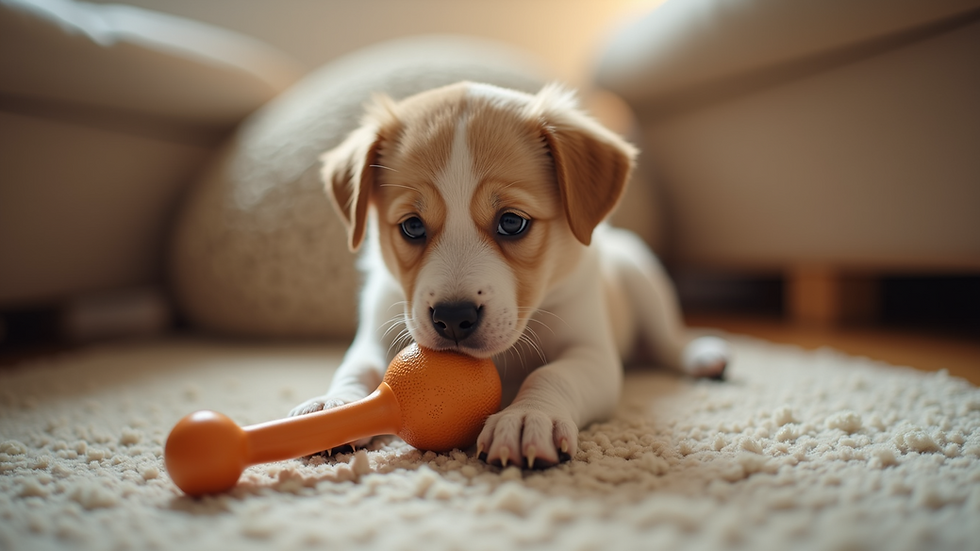Benefits of Private Puppy Programs
- Coral Atnikov
- Oct 3, 2025
- 4 min read
Bringing a new puppy home is exciting, but it also comes with a lot of questions. How do you make sure your puppy grows up to be a well-adjusted, happy dog? One of the best ways is through socialization. You might wonder, what exactly are the benefits of private puppy programs? Let’s dive into why socializing your puppy early on is so important and how it can set the stage for a lifetime of good behavior and strong bonds.
Benefits of Private Puppy Programs
1. Personalized Attention
Private puppy programs offer tailored training sessions that cater to the specific needs and personality of your puppy, ensuring effective learning and bonding.
2. Flexible Scheduling
These programs often provide flexible scheduling options, allowing owners to choose times that best fit their busy lifestyles.
3. Focused Training Environment
With fewer distractions compared to group classes, private sessions allow for a more focused training environment, enhancing the learning experience.
4. Customized Training Plans
Trainers can create customized training plans that address specific behavioral issues or skills you want to develop in your puppy.
5. Enhanced Bonding
Private sessions promote a stronger bond between the puppy and the owner, as they work closely together in a supportive setting.
6. Expert Guidance
Owners receive direct feedback and guidance from professional trainers, helping them to better understand their puppy's behavior and needs.
7. Environmental Exposure Opportunities
While private, these programs can still incorporate environmental exposure opportunities in a variety of settings.
8. Progress Tracking
Trainers can monitor and track progress closely, making adjustments to the training plan as needed to ensure continuous improvement.
Socialization isn’t just about letting your puppy play with other dogs. It’s about exposing them to a variety of people, environments, sounds, and experiences in a positive way. This helps them learn how to react calmly and confidently instead of fearfully or aggressively.
Here are some key benefits:
Reduced fear and anxiety: Puppies that are exposed to different people and animals early on tend to be less scared of new situations.
Better behavior around others: Socialized puppies are less likely to show aggression or excessive shyness.
Improved adaptability: They handle changes in their environment more easily, whether it’s a new park or a visit to the vet.
Stronger bond with owners: When puppies feel secure and confident, they’re more likely to trust and listen to their humans.
Imagine your puppy walking calmly past a busy street or greeting a new visitor without barking wildly. That’s the kind of confidence exposure builds.


How Old Should a Puppy Be to Start Socializing?
Timing is everything when it comes to socialization. The ideal window is often called the “critical socialization period,” which usually falls between 3 and 14 weeks of age. During this time, puppies are most open to new experiences and less likely to develop fears.
Starting socialization too late can make it harder for puppies to adjust to new things, but starting too early without proper precautions can expose them to health risks.
Here’s what I recommend:
Begin as soon as you get your puppy home: Start with gentle exposure to new sights and sounds at home.
Enroll in puppy programs around 8 weeks: Once your puppy has had their first vaccinations, outings and controlled exposure provides safe, supervised experiences..
Keep experiences positive: Always watch your puppy’s reactions and avoid forcing them into scary situations.
Remember, socialization is a gradual process. It’s about building positive memories, not overwhelming your puppy.

Practical Tips to Maximize Socialization Success
Socialization doesn’t stop after training sessions. It’s an ongoing journey that you can support every day. Here are some practical tips I’ve found helpful:
Expose your puppy to different people: Invite friends over, including well behaved children and adults with different appearances.
Introduce new environments: Take short trips to parks, pet-friendly stores, or quiet streets.
Use treats and praise: Reward calm and curious behavior to create positive associations.
Handle your puppy often: Touch their paws, ears, and mouth gently to get them used to being handled.
Watch for stress signals: If your puppy seems scared or overwhelmed, give them a break and try again later.
Consistency is key. Even a few minutes a day of new experiences can make a big difference.
Building a Strong Foundation for a Happy Life Together
Socializing your puppy is one of the best investments you can make in their future. It helps prevent behavior problems like aggression and anxiety, which can be tough to fix later on. Plus, it strengthens the bond between you and your dog.
If you’re feeling unsure about where to start or how to handle specific challenges, don’t hesitate to reach out for professional help. Trainers who specialize in private, in-home sessions can tailor socialization and behavior plans to your puppy’s unique needs.
Remember, every puppy is different, and progress might be slow at times. But with patience, love, and the right support, you’ll watch your puppy grow into a confident, well-mannered dog who’s a joy to be around.
Why not take that first step today? Your puppy’s future self will thank you.





















Comments